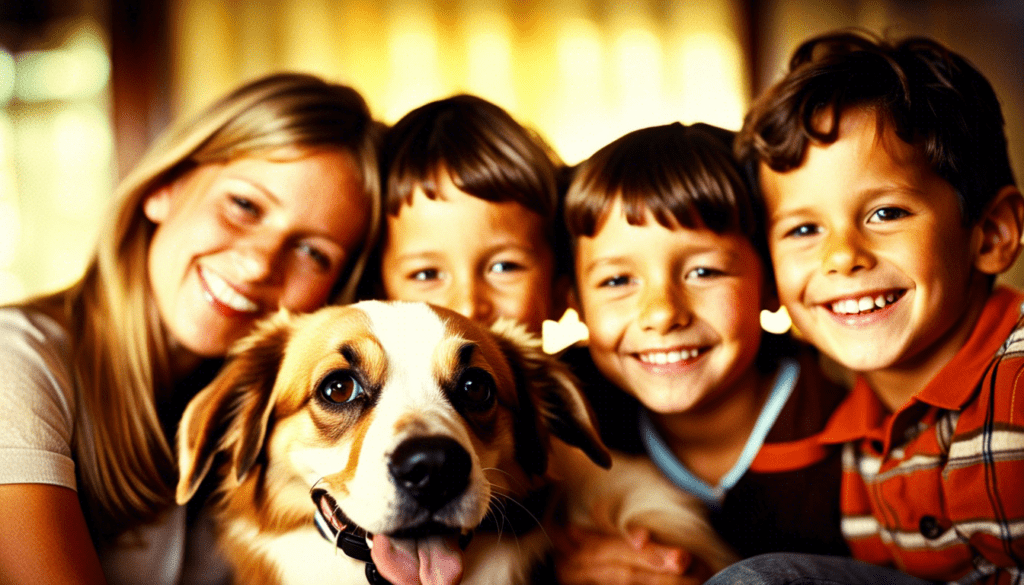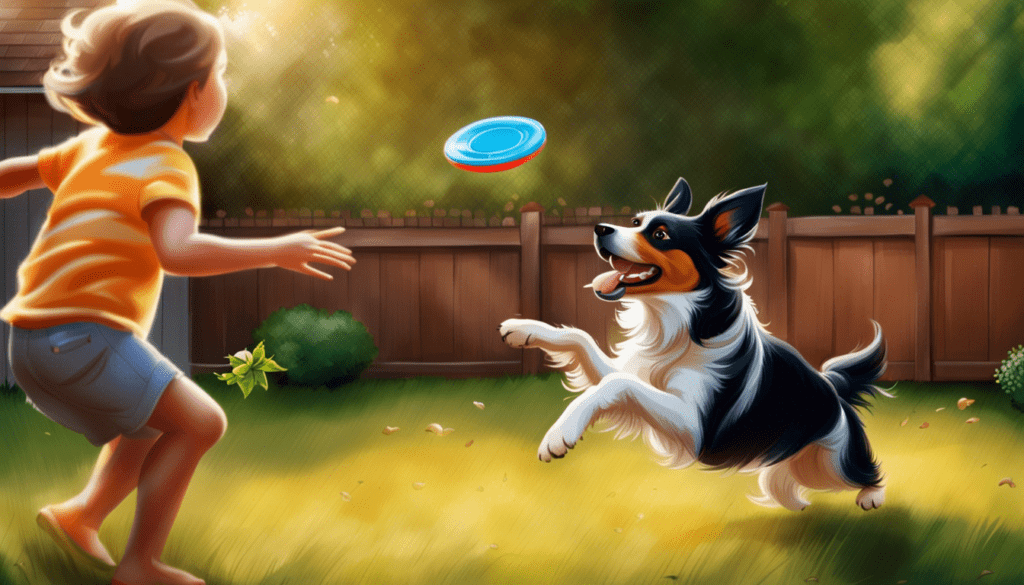Choosing your first dog is a big deal. It’s like adding a new family member! But it can also be a bit overwhelming, especially if you’re new to pet ownership. That’s why it’s crucial to get it right from the start.

In this guide, we’ll break down everything you need to know about picking the perfect pup for you. We’ll keep it simple and easy to understand, so don’t worry if you’re not a dog expert – we’ve got you covered.
From figuring out what kind of dog fits your lifestyle to understanding how to take care of them, we’ll cover all the bases. By the time you’re done reading, you’ll feel confident and ready to bring home your new best friend.
Let’s get started!
Assessing Your Lifestyle

When it comes to choosing the right dog, understanding your lifestyle is key. Your daily routine and living situation play a significant role in determining which furry friend will fit seamlessly into your life. Here’s why it matters and what you should consider:
Importance of understanding your daily routine and living situation: Your daily schedule and living environment will directly impact your dog’s happiness and well-being. For example, if you work long hours and live in a small apartment, a high-energy breed might not be the best fit. Conversely, a more active dog might thrive in your home if you have a flexible schedule and a spacious backyard.
How lifestyle factors influence the choice of dog breed: Different dog breeds have different needs and characteristics. Some breeds are known for their high energy levels and require plenty of exercise and mental stimulation, while others are more laid-back and content with lounging around the house. By matching your lifestyle to the temperament and energy level of a particular breed, you can ensure a harmonious relationship with your new furry friend.
Considerations for active vs. sedentary lifestyles: Consider how much time you can realistically dedicate to exercising and playing with your dog. If you lead an active lifestyle and enjoy outdoor activities like hiking or running, a breed that loves to accompany you on adventures, such as a Labrador Retriever or Australian Shepherd, may be a great fit. On the other hand, if you prefer quiet evenings at home and occasional walks around the neighborhood, a lower-energy breed like a French Bulldog, English Bulldog, Pug, Chow Chow might be more suitable.
Remember, the goal is to find a dog whose needs align with your lifestyle, ensuring a happy and fulfilling relationship for both you and your new furry companion. Take the time to assess your daily routine and living situation carefully before making your decision.
Size Considerations

Understanding the size of the dog you’re considering is another crucial aspect of finding the perfect match for your lifestyle and living space. Here’s what you need to know:
Explanation of small, medium, and large dog breeds: Dogs come in all shapes and sizes, ranging from petite teacup breeds to towering giants. Small breeds typically weigh under 25 pounds and include breeds like Chihuahuas, Pomeranians, and Yorkshire Terriers. Medium breeds weigh between 25 to 50 pounds and include breeds like Beagles, Cocker Spaniels, and Bulldogs. Large breeds weigh over 50 pounds and include breeds like Labrador Retrievers, German Shepherds, and Golden Retrievers.
Space requirements for different-sized dogs: The size of your living space will influence the comfort and well-being of your dog. While small dogs can thrive in apartments or smaller homes with limited outdoor space, larger breeds may require more room to move around and may prefer access to a yard for exercise and play. Consider your living arrangements and whether you have adequate space both indoors and outdoors to accommodate a dog of your desired size.
Matching the size of the dog to your living space and preferences: It’s essential to choose a dog whose size aligns with your living space and preferences. If you reside in a small apartment with minimal outdoor access, a smaller or medium-sized breed may be more suitable. However, if you have ample space and enjoy outdoor activities, a larger breed may be a better fit. Additionally, consider factors such as grooming needs and exercise requirements associated with different-sized dogs to ensure a harmonious match for both you and your new furry companion.
By carefully considering the size of the dog in relation to your living space and preferences, you can find a canine companion that fits seamlessly into your home and lifestyle, bringing joy and companionship for years to come.
Health & Nutrition: Building a Foundation for a Healthy Life

One of the most important aspects of dog ownership is ensuring that your pet maintains good health through proper nutrition and regular veterinary care. Here’s what to keep in mind:
Understanding Dog Nutrition
Dogs require a balanced diet that includes proteins, fats, carbohydrates, vitamins, and minerals. The exact nutritional needs depend on the dog’s age, size, and activity level. Puppies, for example, need more calories and specific nutrients to support their rapid growth, while senior dogs may require fewer calories and more joint support ingredients. Always choose high-quality dog food, and consult with your vet for recommendations tailored to your dog’s specific needs.
The Importance of Regular Veterinary Visits
Regular check-ups with a veterinarian are essential for maintaining your dog’s health. These visits can help catch any potential health issues early on. Your vet will recommend a schedule for vaccinations, deworming, and flea prevention. Additionally, discussing spaying or neutering your pet is crucial, as it can prevent health problems and reduce the number of homeless animals.
Training & Socialization: Keys to a Well-Behaved Companion
Training and socializing your dog from a young age is essential for a harmonious relationship. Here’s how to get started:
Basic Training Commands
Training your dog basic commands such as “sit,” “stay,” “come,” and “leave it” not only helps in managing their behavior but also strengthens your bond. Positive reinforcement methods, like treats and praise, are highly effective and build a trustful relationship between you and your dog.
Socialization
Socializing your dog means exposing them to various people, animals, environments, and situations to ensure they become well-adjusted adults. Proper socialization can prevent fearfulness and aggression. Start socialization early, taking care to do so in a safe and controlled manner, especially before they’ve completed their vaccination series.
Grooming: More Than Just Looks
Grooming is not just about keeping your dog looking good; it’s an essential part of their health and well-being. Here are some grooming basics:
Regular Brushing and Bathing
Regular brushing helps remove dead hair and skin, spread natural oils throughout the coat, and prevent matting. The frequency of brushing and bathing depends on the dog’s breed, coat type, and lifestyle. While some dogs may need daily brushing, others might only need it weekly.
Nail Trimming and Ear Cleaning
Long nails can cause pain and posture problems, so regular nail trimming is important. Ear cleaning should also be part of your grooming routine, especially for breeds prone to ear infections. If you’re uncomfortable performing these tasks, a professional groomer or vet can help.
Finding the Right Vet and Pet Insurance
Choosing the right veterinarian is crucial for your dog’s health. Look for a vet with good reviews and a location that’s convenient for you. It’s also wise to consider pet insurance to help manage healthcare costs. Pet insurance can cover everything from routine check-ups to emergency procedures, depending on the plan.
Final Thoughts

Bringing a dog into your life is a significant commitment that requires careful consideration of your lifestyle, the dog’s size, health and nutrition, training and socialization needs, and grooming requirements. With the right preparation and knowledge, you can ensure a happy, healthy, and fulfilling relationship with your furry companion for years to come.
By following these expert tips and insights, you’re well on your way to becoming a confident and responsible dog owner. Remember, patience, love, and consistency are key to raising a well-adjusted and joyful canine friend. Welcome to the wonderful world of dog ownership!
